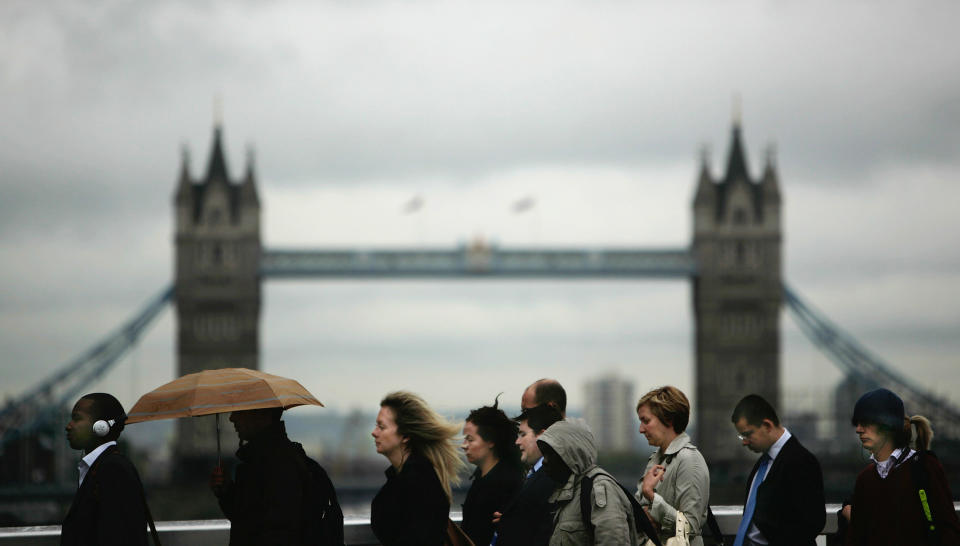Another Brexit referendum would be a mixed blessing for the UK economy

A second Brexit referendum is looking more likely these days, raising the prospect that a disastrous no-deal Brexit could be avoided and Brexit may be cancelled altogether. But economists and strategists aren’t cheering.
Some 268 members of parliament backed the idea of a second referendum on Wednesday evening, making it the single most popular Brexit option. However, it still failed to gain support from a majority of lawmakers.
Many businesses would welcome the opportunity to delay Brexit via a second referendum and get another shot at avoiding some of the most damaging Brexit scenarios. The possibility of avoiding Brexit altogether and maintaining the status quo on trade and EU relations would be ideal for many businesses across the country.
But on the other hand, a second referendum would prolong uncertainty and make it difficult for businesses to plan for the future.
“There are no good options at this point in time,” said Michael Hewson, chief market analyst at CMC Markets UK. “You want [a new referendum] to settle the question once and for all, and I’m not convinced that it would … It just prolongs the uncertainty with respect to the UK economy.”
Holding another referendum is expected to take months to arrange, which could leave companies sitting on their hands and refusing to invest in their businesses as they wait for more certainty.
“Given that we’ve come so close to the cliff edge once, I would imagine that firms would use the extra time to bolster their ‘no-deal’ preparations rather than expand shorter-term investment [and] hiring,” said James Smith, an economist at ING.
The car manufacturing sector provides a stark example of how uncertainty can hurt British businesses.
Recent data from the Society of Motor Manufacturers and Traders (SMMT) showed fresh inward investment in the British car sector plummeted by nearly 50% in 2018 compared to the previous year. Just under £589m was invested in the industry last year, “amid fears over the UK’s future trading prospects with the EU and other key global markets,” the SMMT said.
The UK’s Institute of Directors said its members have mixed feelings about holding a new referendum, especially since it’s expected to take a long time to arrange and no one knows exactly what choices will be presented to British voters.
“A second referendum could extend the current state of political flux but appeals to some businesses as it seems a more decisive route out of the current impasse. That said, much would depend on what was actually on the ballot paper,” said the Institute of Directors’ head of Europe and trade policy, Allie Renison.
READ MORE: 15% plunge in UK car production is a ‘wake-up call’ ahead of Brexit
Are businesses ready for a no-deal Brexit?
More companies are feeling prepared for a potential no-deal Brexit these days. The Bank of England (BoE) published a business survey this month indicating that about 80% of companies considered themselves to be ready for a no-deal scenario, up from 50% in January.
“Nevertheless, many companies reported that there were limits to the degree of readiness that was feasible in the face of the range of possible outcomes,” the central bank said, noting that issues like tariffs and border slowdowns were out of the control of businesses.
The BoE previously predicted that a no-deal Brexit could do more damage to Britain than the global financial crisis, with expectations that the UK economy would shrink by about 8% within a year and house prices would fall by about 30%.
Markets in flux
The BoE also noted this month that uncertainty about Brexit timing was having a big influence on the UK pound (GBPUSD=X, GBPEUR=X) and financial markets.
“Shifting expectations about the potential nature and timing of the United Kingdom’s withdrawal from the European Union have continued to generate volatility in UK asset prices, particularly the sterling exchange rate,” the central bank said.
Any trader response to a second referendum would be dependent upon what’s on the new ballot, said Stephanie Kelly, a senior political economist at Aberdeen Standard Investments Research Institute.
“If it’s a straight choice between some version of a withdrawal agreement and remain, markets are likely to respond positively as there would be plenty of upside for UK … assets,” she said. “However, if a second referendum had ‘no-deal’ as an option, I think markets would be nervous in the run-up given the tangible risk of a cliff-edge departure.”

 Yahoo Finance
Yahoo Finance 